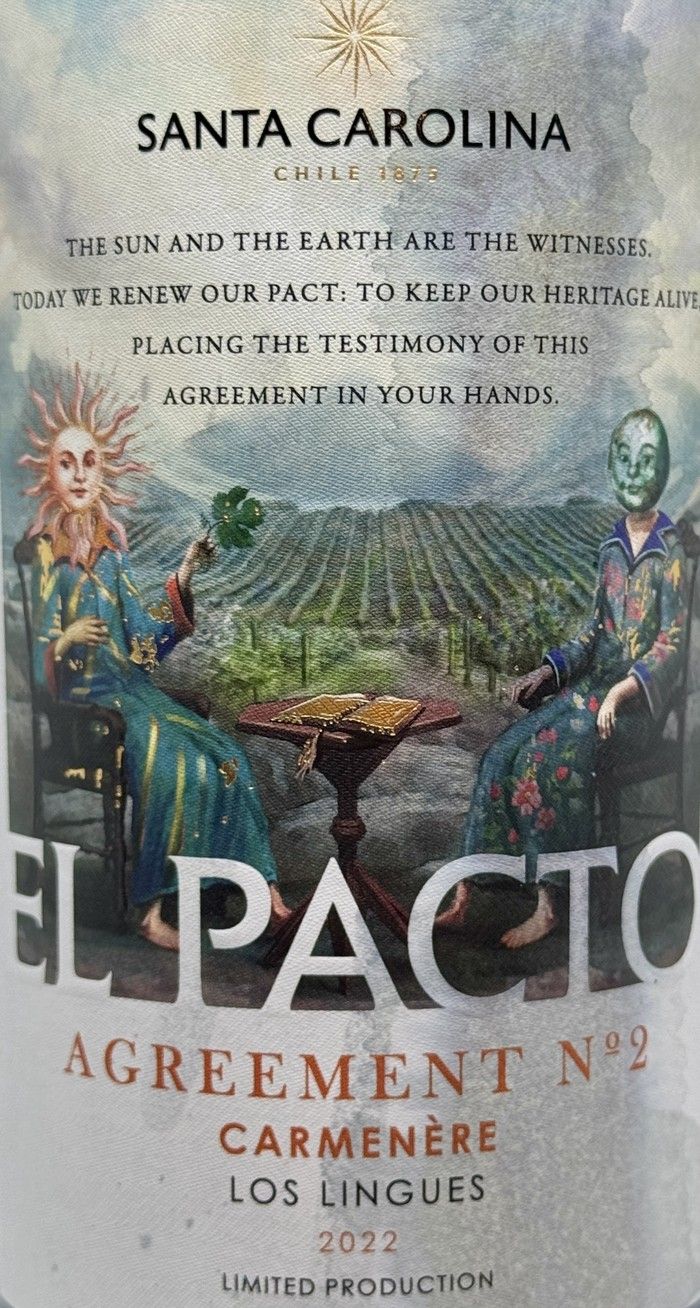Anthony Gismondi: Here's my solution to the interprovincial wine sales debate
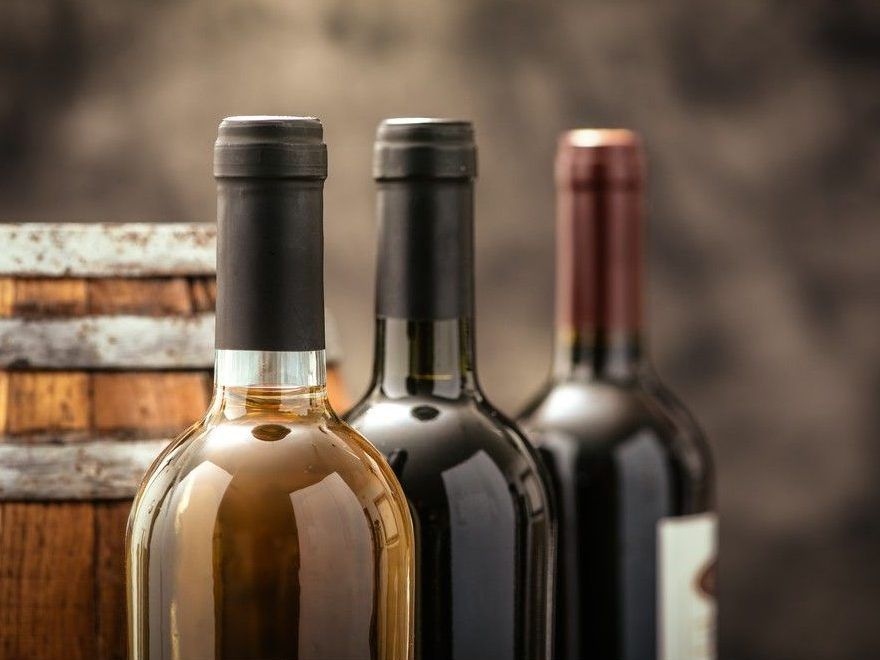
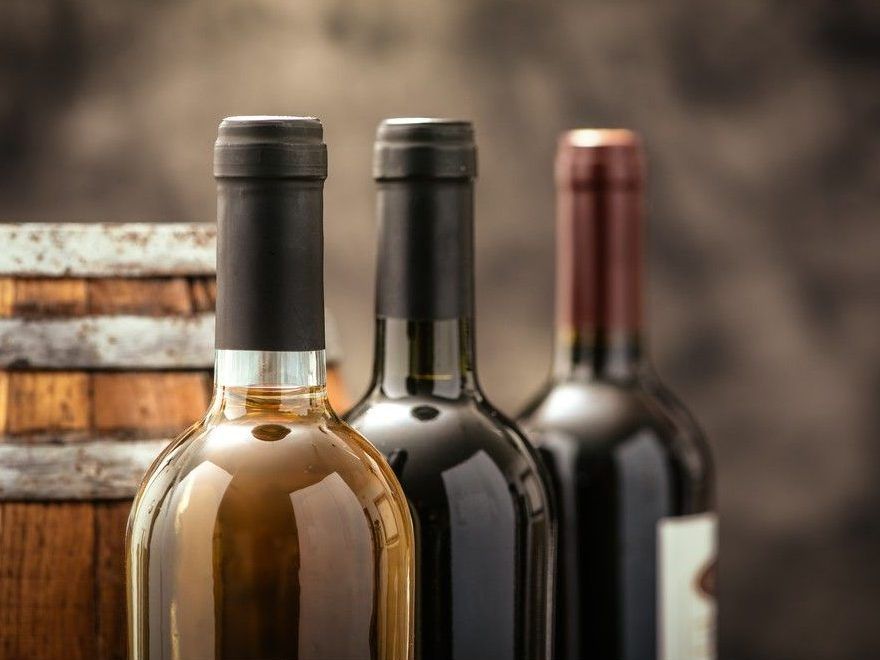
In today’s column, I’m cutting to the heart of the matter, beginning with the ongoing Canadian debate about interprovincial wine sales.
The discussion centres around the long-standing barriers that prevent wineries from shipping their products directly to consumers. The federal government has no issue with DTC sales, but the provinces have the final say. While a few have fully opened their borders, some of the most prominent players, Ontario, Quebec, and Alberta, have found ways not to respond with enthusiasm.
Here’s my solution:
Knowing that it is all about taxation, why not institute a Canadian wine tax of $2-$3 for every bottle produced and sold in Canada? It’s affordable and can be awarded to whatever province ends up being the final destination of the wine. The tax would likely keep the rest of the world from complaining about the current home-team advantage of not paying the markup imposed on imported wine.
Consumers would be happy to access wines from all Canadian producers, and producers would be free to ship their products across the country. Any winery brave enough to export wine internationally should pay no tax on those bottles to help build more markets outside the country and more resilience, rather than depend on the demands of a single market.
The reports of declining wine sales are mainly among a wide range of brands made with the cheapest ingredients. These brands were always long on hype and packaging and short on quality. Essentially, they were trading on the success of land-based producers making authentic handmade wines that eventually built a global market of informed wine drinkers.
The onslaught of beverage wines never had a chance of remaining in demand for more than a wine moment, so their demise should be no big surprise as they are replaced by the next drink of the moment. A shrinking big brand market allows local producers worldwide to review their plans and prepare for what’s next in artisanal wine. You can survive easily if you are connected to your land and customers and have a story to tell.
That said, fine wine is hardly exempt from declining sales, especially where greed and ignorance are plentiful. Bordeaux is one such region. According to The Drinks Business, during the 2010s, Chinese nationals bought 176 vineyards across Bordeaux, drawn by the prestige of French wine and the booming domestic market.
They also drank 80 million bottles of Bordeaux annually, making China Bordeaux’s No. 1 export market. Michael Baynes of Vineyards Bordeaux, who sold 12 wineries last year, says the market will be saturated by the end of 2024. Around 400 Bordeaux vineyards are on the market — double the usual number — with about 70 per cent classified as distressed sales needing urgent maintenance.
Why mention all this as the vineyards across B.C. begin to push buds and set leaves and flowers that determine the size of next fall’s harvest? Growers have faced challenges since 2020, starting with the pandemic and its hardship on many Canadians’ health and finances. Restaurants have lost customers and staff. Wineries have faced wildfires/smoke, and deep freezes. Still, seemingly, they are poised for a solid recovery as anti-tariff, staycation tourism rises, and the prospect of having no wines to sell has been put to rest thanks to some nimble teamwork to make short-term replacement wines a reality.
In a wine world where big is not as appealing as it once was, B.C.’s artisanal producers, sitting in a truly cool climate, making refreshing wines at moderate alcohols, could be ready to take another step on the global wine stage. I know they will be over the moon to receive anyone who decides to visit them this summer to see for themselves what we have to offer.
Weekend Wine Picks
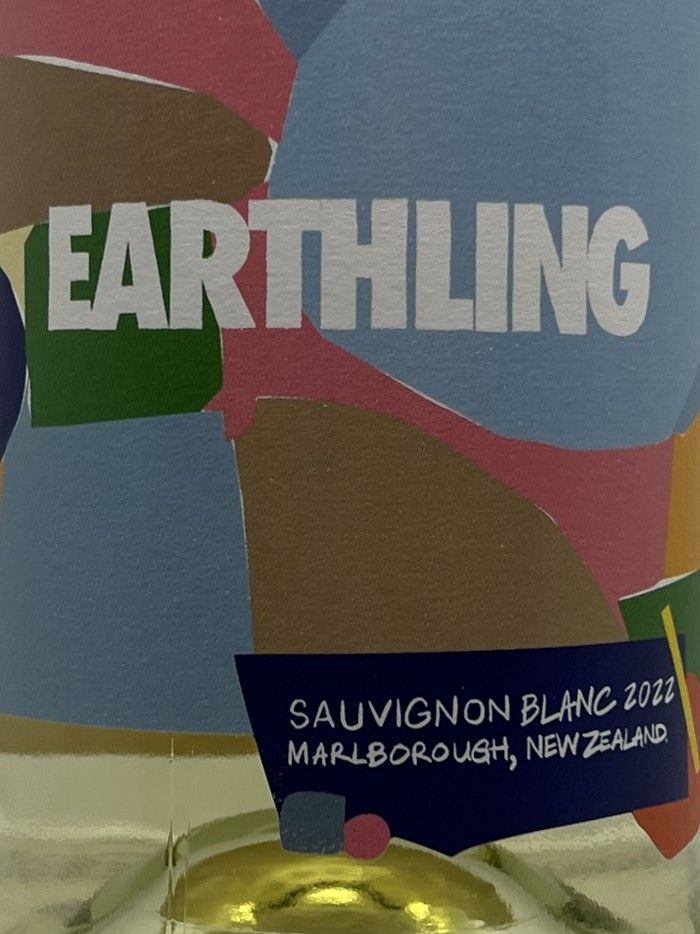
Earthling Sauvignon Blanc 2023, Marlborough, South Island, New Zealand
$21.00 I 89/100
UPC:
9419453000665
Earthling has a story that most wines do not; it is up front about it. The background of the front label changes with each bottle and you’ll find a new “Earthling” on every back label in a case that offers a unique “cheers” to a relatable human truth. OK, but what about the wine? The classic aggressive, blousy Kiwi Sauvignon that leads with lime, citrus, gooseberries and passion fruit. Impressive. The Earthling uses lightweight bottles (417g), makes minimal use of farming equipment, plants 100s of trees to offset its carbon footprint and more to be a responsible land caretaker.
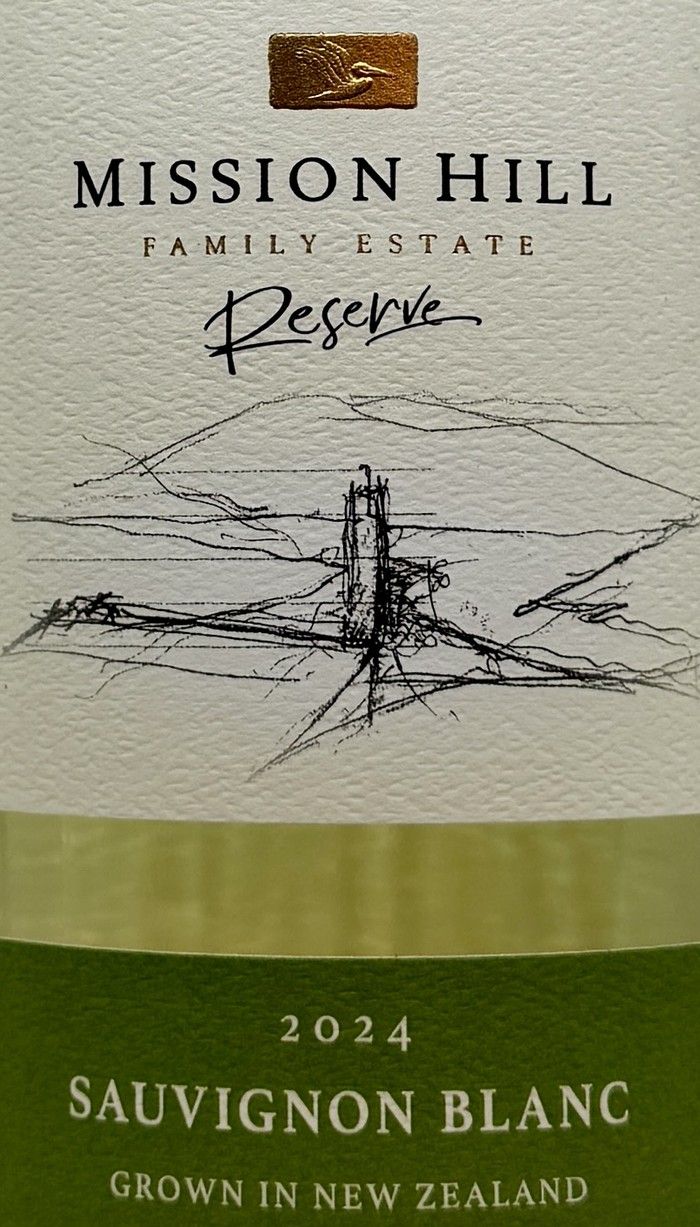
Mission Hill Reserve Sauvignon Blanc Grown in New Zealand 2024, Marlborough, New Zealand
$25.99 I 91/100
UPC:
776545502001
The Mission Hill “Made in Canada with Foreign Ingredients” replacement wine comes from the South Island’s Marlborough region. Kiwi Sauvignon fans will undoubtedly be pleased with the quality of this wine, which may be better than half the New Zealand labels sold in B.C. The nose and palate are as vibrant as it gets, the acidity bright and tight, and the plate full of classic lime zest and gooseberry/passion fruit flavours with a hint of tropicality and minerality to keep it all crisp and flavourful through the finish. A warm, dry summer Down Under has yielded a fine, concentrated, fruit-driven wine with endless shellfish possibilities.
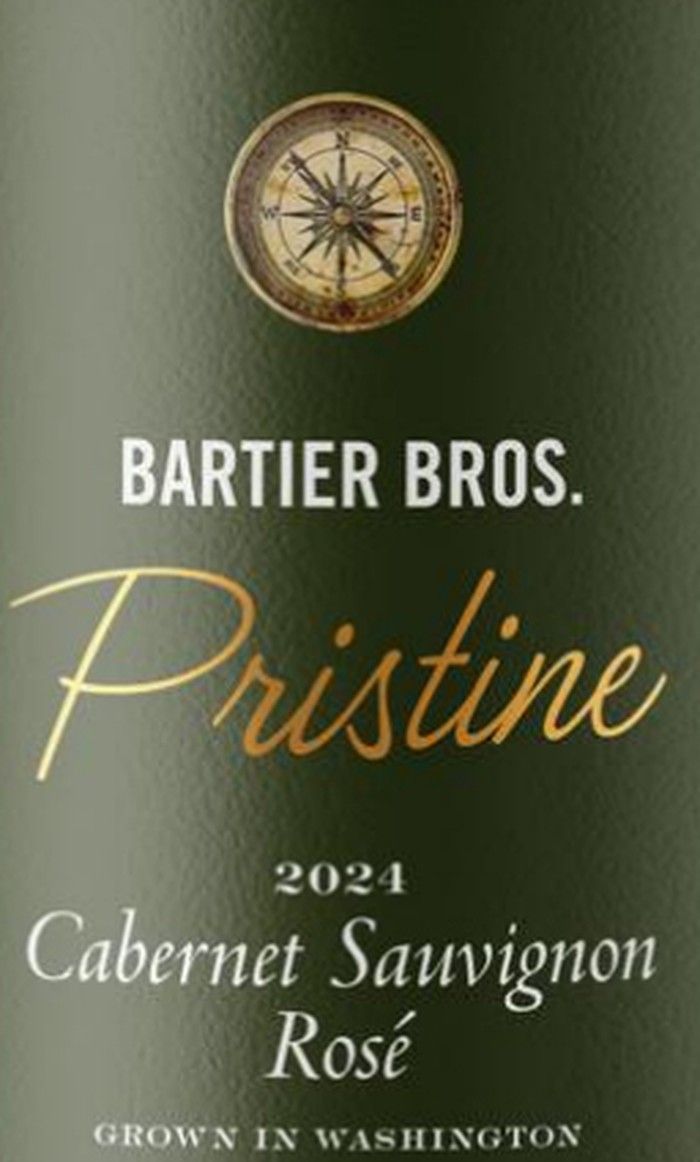
Bartier Bros. Pristine Rosé 2024, Wahluke Slope, Columbia Valley, Washington, United States
$17.99 I 88/100
UPC:
628055147701
Pristine is how Bartier Bros. chose to describe its made-in-B. C. wines from foreign ingredients or, as my colleague Treve Ring describes, CIBC wines (Crafted in B.C.). Either way, Bartier has exploited Washington’s Wahluke Slope AVA, blending 94/3/2/1 Cabernet Sauvignon, Pinot Noir, Chardonnay and Riesling. Almost colourless, this barely pink wine pitches soft red berries on a silky-smooth palate with a dash of spice and orchard fruits. Reserved, ready to drink and food-friendly. We love the price.
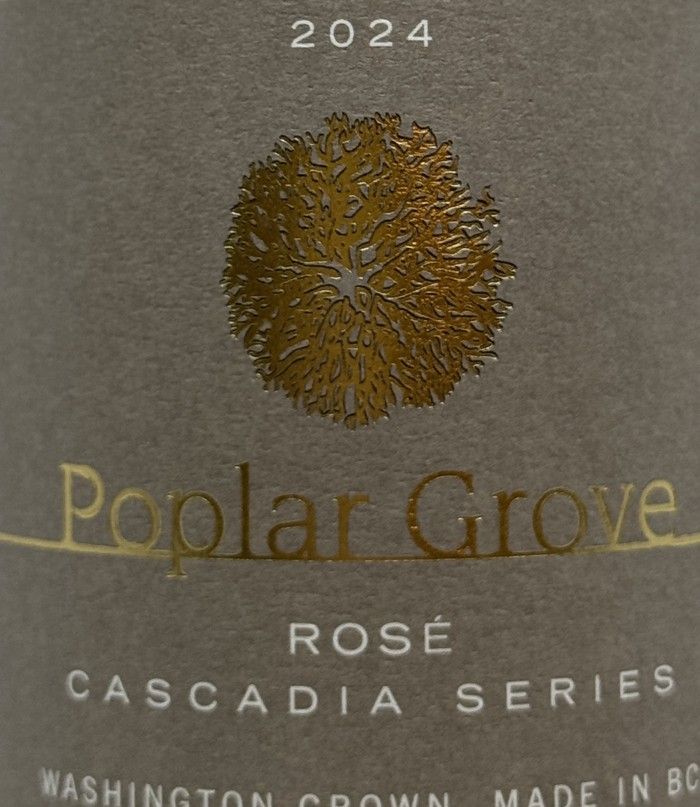
Poplar Grove Rosé Cascadia Series 2024, Washington, United States
$19.99 I 89/100
UPC:
696852145381
Poplar Grove has released the Cascadia Series to augment its production after the winter freezes of 2023 and 2024. The fruit for this rose comes from a series of Washington AVAS: Wahluke Slope, Goose Gap, Yakima Valley and Horse heaven Hills. All of the grapes were processed in B.C. The finished product is a soft, gulpable pink, packed full of watermelon, oranges and pink grapefruit that expresses the aromas and the flavours of those summertime fruits. It is a touch low on acidity, so stay away from creamy dishes. You might enjoy it best cooled down and served solo on a warm patio, or try it with salty chips.
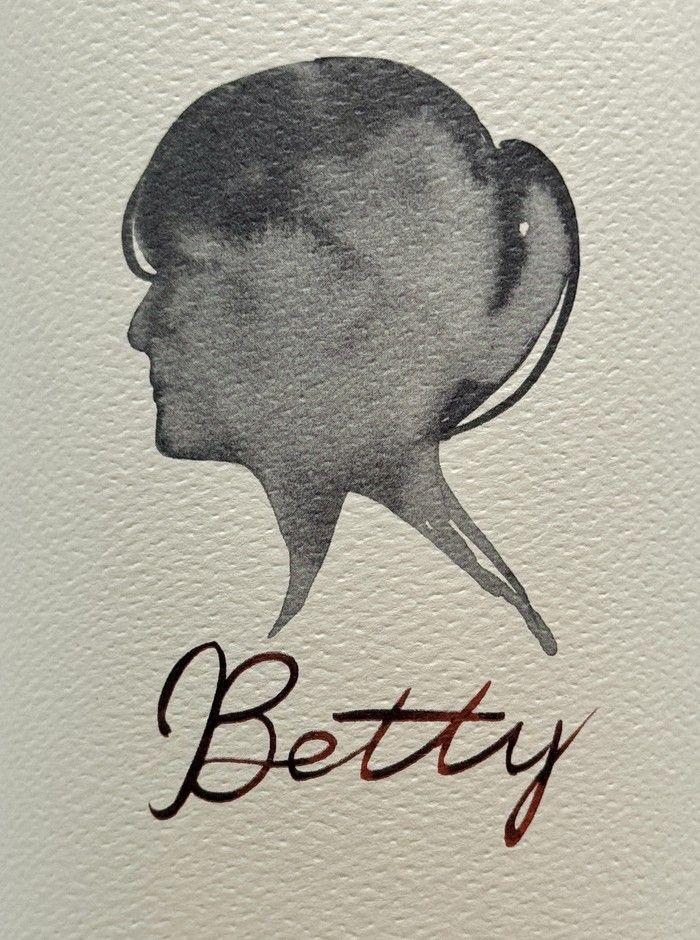
Three Sisters Winery Betty The Matriarch Series 2022, Naramata Bench, Okanagan Valley, BC.
$45.00 I 90/100
UPC:
696852003476
Matthew and Rebecca Mikulic have launched their latest series, The Matriarchs, celebrating the strength, wisdom and love their mothers gave them. “With every bottle, we honour their stories and lasting influence on future generations. “Betty is 100 per cent Zinfandel, which pays homage to her Croatian heritage. DNA analysis has revealed that Zinfandel is genetically identical to the Croatian grape varieties Crljenak Kaštelanski and Pribidrag, which have been grown for centuries. It is an alluring, easy-sipping style with juicy, bright, grapey fruit and nearly zero tannins. It’s a Pinot Noir version of Zinfandel, but you can serve it to your mom or a wine aficionado; both will appreciate its style.
Calendar items
• The third annual Langley Craft Beverage Week runs until May 18. It offers a series of lively, flavourful events hosted by the Langley Loop collaborative, which includes eight independent breweries, a cidery, a distillery, a B.C.-exclusive taphouse and a university brewing program — all rooted in collaboration and community. The festivities kick off the Langley Loop’s 2025 collaboration beer, Lean on Me, a Hazy Double IPA brewed at Locality Brewing. The collaborative members include: The Barley Merchant, Brookswood Brewing, Camp Beer Co., Dead Frog Brewery, Farm Country Brewing, Five Roads Brewing, Fraser Valley Cider Company, Locality Brewing, Roots & Wings Distillery, Smugglers Trail, Trading Post Brewing and Kwantlen Polytechnic University’s Brewery Operations program. The eighth annual Brewhalla Beer and Music Festival returns to Fort Langley Park (9089 Nash St.) from 12 to 6 p.m. and will feature live music, 30 local beverage makers and eight food trucks. Tickets are $49 per person at
.
• A three-year run at Bar Susu, a beloved Mount Pleasant natural wine bar and late-night spot, ends May 30. During its short tenure, it won several accolades, including Gold for Best New Restaurant in the 2022 Vancouver Magazine Restaurant Awards and landing on the inaugural Michelin Guide Vancouver recommended list. To mark its final service period, Bar Susu will be bringing back a rotating list of some of its most iconic dishes and drinks from the past few years, including crowd favourites, such as versions of the Honey Cruller, Sablefish with Tom Kha Sauce, Crispy Cheese Bites, and Dinosaur Kale Salad and more. It will be open Tuesday through Saturday from now until its closing night.
B.C. wine of the week
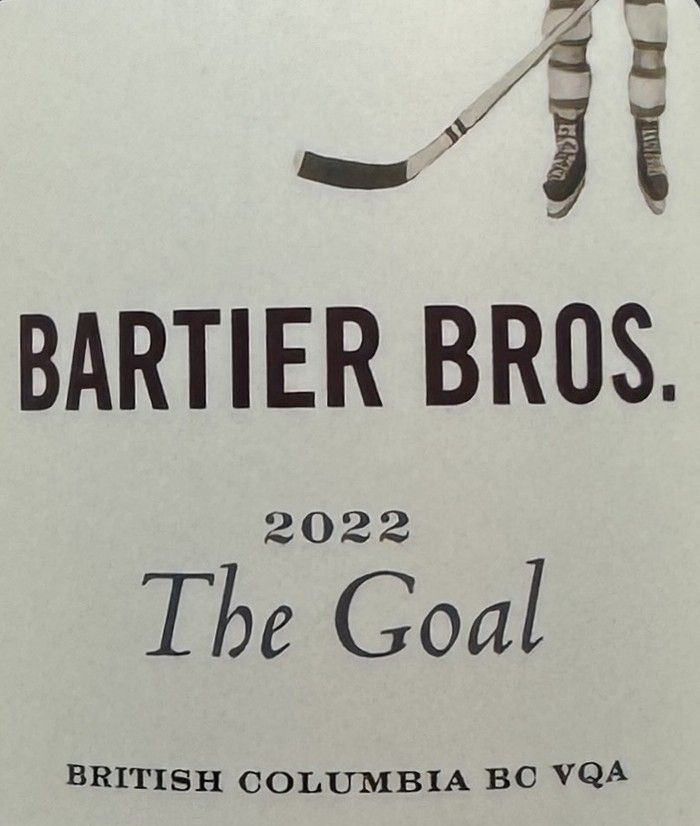
Bartier Bros. Illegal Curve 2022, Okanagan Valley, British Columbia, Canada
$25.99 I 89/100
UPC:
628055147596
Winemaker Michael Bartier is a big hockey fan and this Merlot, with a dash of Cabernet Franc, is an ode to the curved stick that transposed hockey to another level, something Bartier has been doing with wine in the South Okanagan. The ’22 is deep and dark with savoury, resiny black fruit lined with green pepper streaks and firm tannins. At just under 14 per cent, it is as warm as the Bartier reds get. Youthful and dry in the back end, this needs time in the bottle to come together and let the vintage show through, or a rare-ish grilled steak now.
Value Wine of the Week
Santa Carolina El Pacto Agreement No 2 Carmenere 2022, Los Lingues, Valle del Colchagua, Valle del Rapel, Chile
$19.99 I 89/100
UPC:
7804350009576
The Carménère grape originated in Bordeaux but has slowly become a major varietal wine for Chile. It has a distinctive herbaceous/grilled bell pepper scent that is hard to miss. Santa Carolina releases a silky smooth version that pitches juicy, ripe black plum, raspberries and cherries, with an earthy, spicy undertone. The acid is bright and the wine is lively. It is a perfect wine for grilled chicken or vegetarian fajitas with fresh chimichurri sauce. It is good value.
Source: vancouversun.com


